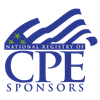
Geolocation Technology in the Fight Against Fraud

The Geolocation Technology in the Fight Against Fraud course introduces geolocation as a vital tool for fraud prevention, covering technologies like IP geolocation, GSM triangulation, Wi-Fi, GPS, and Bluetooth-based tracking. Each method brings unique strengths in pinpointing user and device locations, aiding in fraud detection by flagging suspicious behaviors, and verifying low-risk activities. The course explores geolocation's evolution from basic IP-based methods to sophisticated, multi-layered solutions that enhance accuracy and provide real-time insights. Privacy, legal compliance, and data security are emphasized, with guidance on adhering to regulations like GDPR and CCPA through transparent data handling and user consent.
MRC Members: USD $150 (plus applicable taxes)
Non-members: USD $300 (plus applicable taxes)
Learners gain practical skills in implementing geolocation for fraud detection, including setup, data collection, and integration with other security systems. The course examines evasion tactics fraudsters use, such as VPNs and location spoofing, and effective countermeasures to address these challenges. Future trends are discussed, expanding the potential of geolocation in security frameworks. Concluding with ethical and legal considerations, the course prepares participants to responsibly leverage geolocation technology for enhanced fraud prevention while upholding user privacy and trust.
FAQs
-
- eCommerce payment managers seeking to enhance their understanding of payments orchestration.
- Fraud prevention specialists who need to understand how payments orchestration can impact fraud management
- eCommerce business owners and managers looking to optimize their payment systems for efficiency and cost-effectiveness.
- Customer experience managers looking to optimize the customer experience through streamlined and efficient payment processes.
- The course may also benefit financial analysts, IT and technical professionals, compliance officers, and strategic planners and consultants in online retail.
- eCommerce payment managers seeking to enhance their understanding of payments orchestration.
- Fraud prevention specialists who need to understand how payments orchestration can impact fraud management
- eCommerce business owners and managers looking to optimize their payment systems for efficiency and cost-effectiveness.
- Customer experience managers looking to optimize the customer experience through streamlined and efficient payment processes.
- The course may also benefit financial analysts, IT and technical professionals, compliance officers, and strategic planners and consultants in online retail.
-
- Program Level: Basic
- Program Field of Study: Specialized Knowledge
- Program Delivery Method: QAS Self Study
- CPE Credits: 1.0
- Advanced Preparation and/or Pre-requisites: None
Please allow approx. 1 hour to complete this course. The course culminates with a comprehensive final assessment to evaluate the user's comprehension of the material. Upon successfully completing the final assessment, participants will be awarded a certificate of completion and CPE credits representing their proficiency in the subject matter.
- Program Level: Basic
- Program Field of Study: Specialized Knowledge
- Program Delivery Method: QAS Self Study
- CPE Credits: 1.0
- Advanced Preparation and/or Pre-requisites: None
Please allow approx. 1 hour to complete this course. The course culminates with a comprehensive final assessment to evaluate the user's comprehension of the material. Upon successfully completing the final assessment, participants will be awarded a certificate of completion and CPE credits representing their proficiency in the subject matter.
-
- Define payments orchestration
- List key challenges that payments orchestration aims to solve
- Outline how payments orchestration works
- Identify and describe the components of payments orchestration
- Identify the key benefits of payments orchestration for merchants
- Describe payment and fraud management costs
- Identify initiatives that drive more efficient cost ownership
- Outline key considerations for merchants looking to partner with a payments orchestration provider
- Define payments orchestration
- List key challenges that payments orchestration aims to solve
- Outline how payments orchestration works
- Identify and describe the components of payments orchestration
- Identify the key benefits of payments orchestration for merchants
- Describe payment and fraud management costs
- Identify initiatives that drive more efficient cost ownership
- Outline key considerations for merchants looking to partner with a payments orchestration provider
-
- MRC Members: USD $75 (plus applicable taxes)
- Non-members: USD $150 (plus applicable taxes)
MRC Education Accreditation

MRC Education Refund Policy